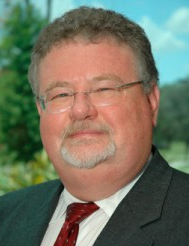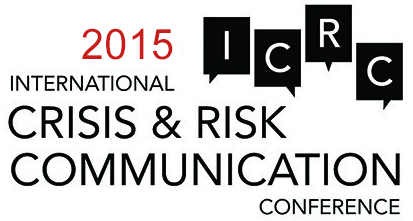
Director
Nicholson School of Communication
USA
Robert C. Chandler, Ph.D. is a recognized author and communication expert specializing in crisis and risk communication. As director of the Nicholson School of Communication (NSC) at the University of Central Florida, Dr. Chandler initiated the annual International Crisis and Risk Communication Conference (ICRC). Hosted by the Nicholson School of Communication (NSC) and UCF, the ICRC Conference brings together academic and professional participants to share knowledge related to strategic communication for crisis and rick communication contexts. Dr. Chandler earned his Ph.D. at the University of Kansas, his M.A. at Wake Forest University and his B. A. at Harding College
Pre-Conference Workshop (Monday March 2, 1-5 p.m., UCF Student Union, 3rd Floor):
“Emergency Communication Effectiveness” – Robert C. Chandler, PhD, Nicholson School of Communication, UCF, Orlando, Florida, USA
Features discussion on Multi-language Emergency Alerting Issues, to include co-presenters:
Federico Subervi, Professor, Kent State University, Ohio, USA
Arlyn Rivera-Elizée, Multi-language Messaging Expert; Sr. Vice President, Access Consulting, Washington, DC, USA
Tony Morejon, Hispanic Affairs Liaison, Hillsborough County, Florida, USA
Katie Coronado, Instructor, Radio-Television, Nicholson School of Communication, University of Central Florida, Orlando, Florida, USA
The capability to provide effective, appropriate disaster alerts during major, sudden or logistically complex disasters involves prior advance planning to ensure that notifications can be delivered and understood rapidly and effectively by diverse audiences, and by individuals who will be experiencing heightened or prolonged stress.
This presentation outlines the stages of crisis and the crisis-stress factor, which may significantly impact human cognitive functioning. Types of specific informational needs at each crisis stage will also be outlined, and other considerations for effective message construction and delivery will be discussed. The phenomena of “first language reversion during crisis,” reported by a number of bilingual or multilingual individuals who have experienced crisis stress, will be recounted.
In the U.S. citizenry, growing multilanguage populations, including those with limited English proficiency, challenge the feasibility of providing effective emergency alerts during major widespread disasters. Recent crises such as Hurricane Sandy and other disasters have shown significant vulnerabilities in this area, in terms of effectively reaching all audiences with proper messages, especially when individuals become displaced, power is lost, and crucial messages simply must be received and understood.
Crisis and risk communication professionals such as public service providers, national and local broadcast professionals, and legal experts weighed in with the Federal Communication Commission earlier this year with concerns and issues on this complex topic, initially raised as a result of tragic implications during Hurricane Katrina. Many questions and challenges remain.
Appropriate language and vocabulary choice, as well as possible cultural contexts will be shared, along with several other foundational strategy suggestions for creating better emergency messages.
Participants in this workshop will form case study-based discussion groups, wherein they will collaborate regarding what tools and techniques they use, under which conditions, in order to effectively analyze audience demographics, prepare messaging strategy, and otherwise optimize their emergency messaging communication effectiveness.
Breakout Session: Crisis Relationship Repair Framework (CRRF) (Tuesday, March 3rd, 1:40 pm – 2:10 pm, Cedar Key)
Illumination, Explanation and Normative Framework
Co-presenters: Dr. Denise P. Ferguson, APR, and J.D. Wallace, Ph.D
There are a number of theoretical models and frameworks that are intended to explain, critique and guide normative practices for crisis communication. Many of these models or their underlying assumptions are imported from a wide range of disciplines and fields. Each model is useful and can offer important insights. However, none were sufficiently able to offer a completely satisfying explanation of certain empirical findings: Certain crisis communication message strategies seemed to be consistently perceived as effective, ethical and recommended despite wide differences in latent excellence, existing social capital, situational context, or other explanatory variables.
Advanced as a heuristic conjecture, the Crisis Relationship Repair Framework (CRRF) is described and presented as an approach − grounded in both communication and public relations core theories and practices − which might explain the findings of stable, consistent perceptions of message strategies regardless of source or type of crisis event. The CRRF framework could be helpful as an aid to understand why some crisis communication works and some doesn’t work, and to offer some practical normative guidance for choice of crisis communication strategies and tactics.


